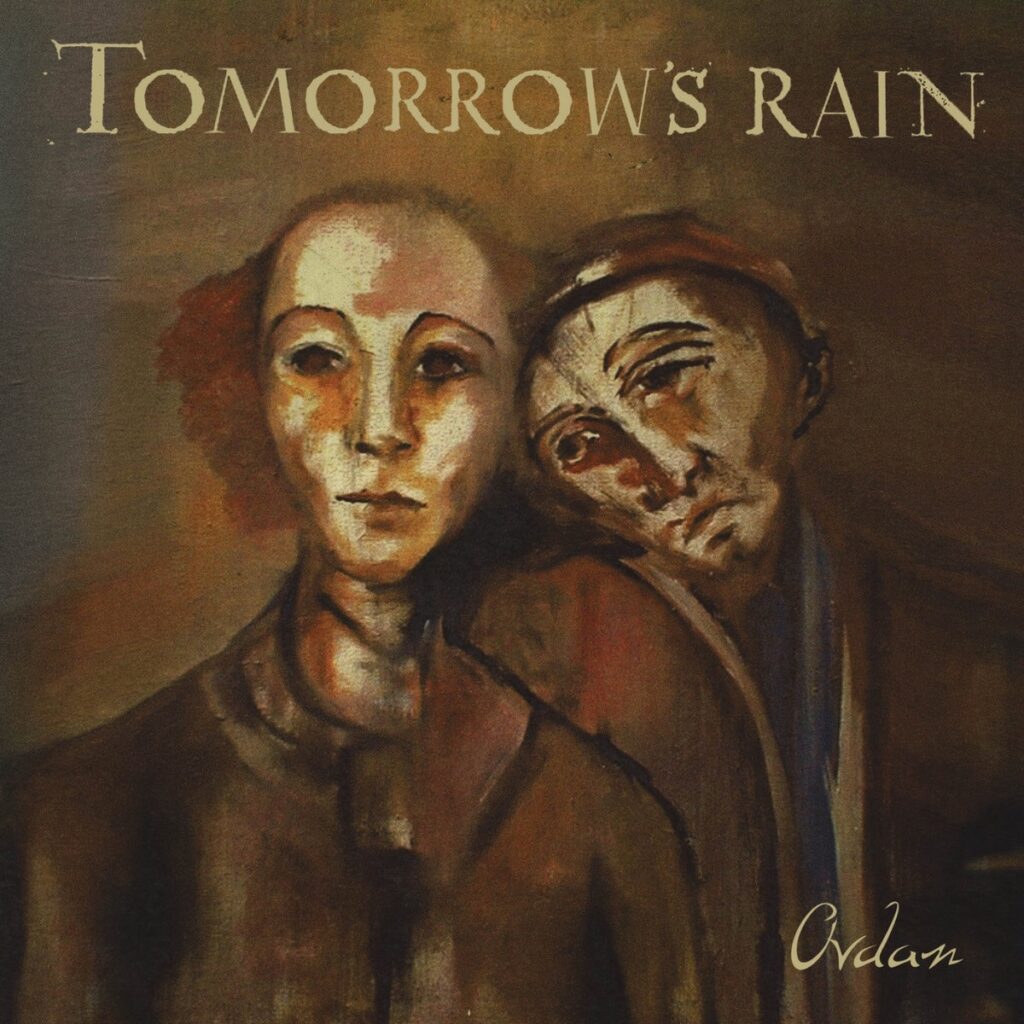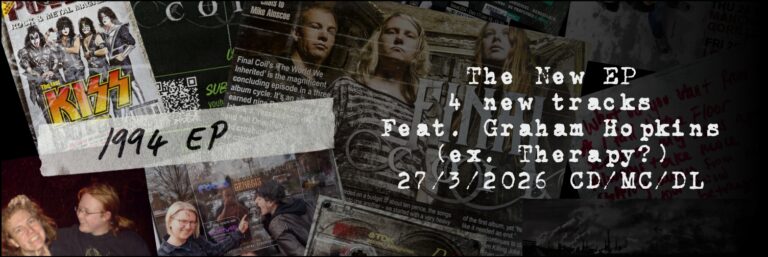
Returning with their sophomore full-length album, Tomorrow’s Rain build upon the much-deserved success of 2020’s Hollow with a second helping of dark, doom-laden metal that references the likes of Paradise Lost, My Dying Bride, and Katatonia, whilst carving out its own identity along the way. Once again, the band have gathered a remarkable ensemble cast for the album, with guests including Attila Csihar (Mayhem), Michael Denner (King Diamond), Ben Christo (Sisters of Mercy), Tony Wakeford (Sol Invictus), Andreas Vingback (Dark Funeral), Mickael Brobwerg (Unanimated), Jan Lubitzki (Depressive age) and Anja Huwe (Xmal Deutschland). However, while these names are indeed impressive, they merely add depth to the work of Tomorrow’s Rain, helping the band to build greater sonic temples, rather than becoming the driving force behind their work.
Giving greater weight to the album, Ovdan was written in the shadow of near-catastrophe – vocalist Yishai Sweartz having suffered a near-fatal heart attack, resulting in an intense 8-hour open-heart surgery procedure, followed by 3-weeks in intensive care. While Yishai appears philosophical about his experience, the lyrics are charged with potential finality, a sense that reaches its harrowing conclusion with the dramatic Intensive Care Unit, which rounds out the album. And yet the album is not without hope, Yishai by turns defying his own mortality and seeking catharsis through some strikingly metallic pieces of music.
The album opens on a surprising note, with the jazz-tinged gothic rock of Roads, which takes elements of Fields of the Nephilim, Paradise Lost, and latter-day Ulver to create something refreshingly different. An epic opening piece, it sees the band dip their toes into ferocious black metal towards its conclusion and, with Arie Aranovich capturing the band’s ambitious soundscapes with clarity, it’s a stunning opening gambit that sets a high bar for the album that follows. Offering a neat contrast to the tumultuous finale of its predecessor, Sunrisecombines neo-psychedelic guitars with semi-spoken-word vocals, the band weaving a compelling atmosphere around the listener. It’s followed by Muaka, which opens with a lovely guitar figure that slowly blossoms into something far darker and deathlier. With elements of My Dying Bride and early Paradise Lost embedded in its DNA, it introduces a harder edge to the album, which continues into the blistering Room 124. However, while the band are surely adept at double-kick onslaughts, they are not content to remain wedded to the approach, and the album’s first half ends with the mesmerising I Skuggornas Grav, which incorporates aspects of Portishead and Dead Can Dance. Hypnotic and rather beautiful, it’s a unique addition to the band’s canon and it keeps the listener hooked.
Opening the second half of the album, Burning Times greets the listener with a monumental riff, before heading back into gothic territory, the vocals in particular recalling Sisters of Mercy. Next up, Turn Around(which also appears in gothic form as a bonus track), is a standout track with it driving pace, gritty vocals, and crunchy riffs. Harking back to Paradise Lost’s Draconian Times, it neatly showcases the band’s tight grasp of dynamics. The reflective Convalescence may open in the vein of Metallica, with harmonised leads backed by mid-tempo drums, but it soon takes a darker turn, the deathly elements creeping back in as the band deftly juggle melody and melodrama and it emerges as one of the album’s most powerful pieces of music. It leaves two short pieces to round the album out. The first, Rainbow, is a subtle instrumental offering a moment of rippling beauty before the harrowing Intensive Care Unit brings the album to a dramatic close. It’s an unusual way in which to close an album but, given Yishai’s experiences, it proves both poignant and cathartic.
There is also a bonus track – Turn Around (Gothic Rock Version) – which, while a fine piece in its own right, is misplaced, lessening the impact of Intensive Care Unit. While it may seem churlish to complain about extras, the whole point of an album like Ordan is that it has an ebb and flow that is all its own, and tacking the track on here just feels unnecessary.
Overall, Ovdan is another deeply impressive outing from Tomorrow’s Rain. While it boasts a strong supporting cast of guest musicians, the reality is that the music is so compelling that you rarely (if at all) find yourself thinking of who is guesting where. Instead, the guests allow the band to concentrate on creating the best possible music they can, freed from constraint and able to push forward with any idea that presents itself. An engaging and varied album, Ovdan arguably improves upon its predecessor and, once more, shows Tomorrow’s Rain as masters of their craft. 9/10



